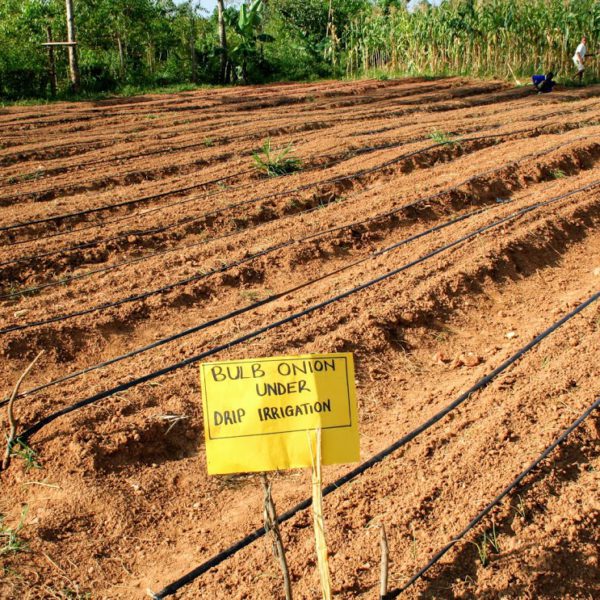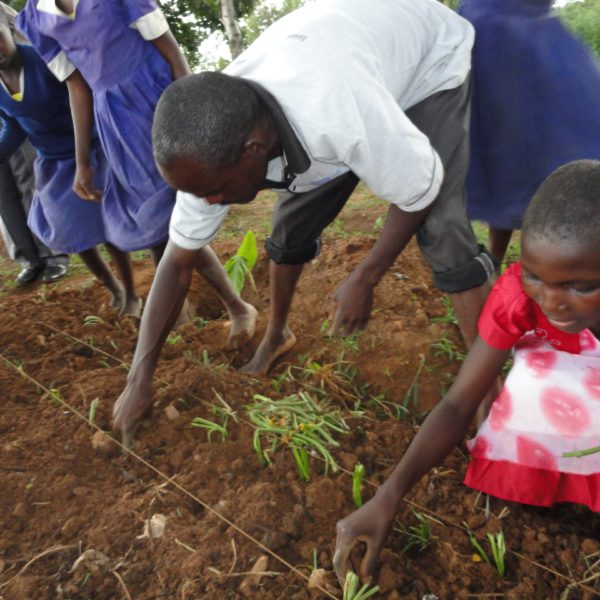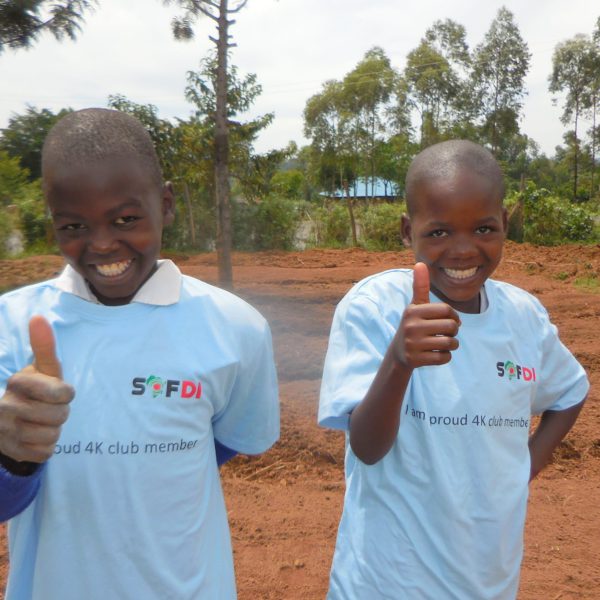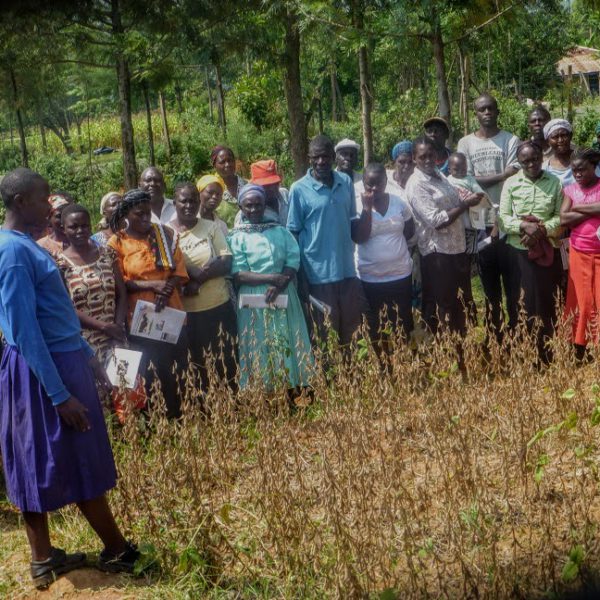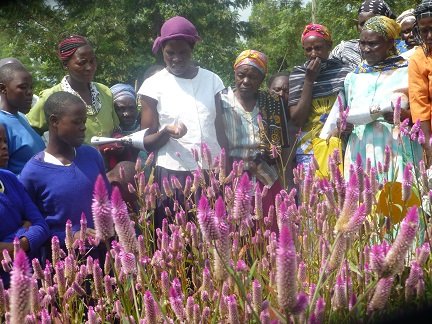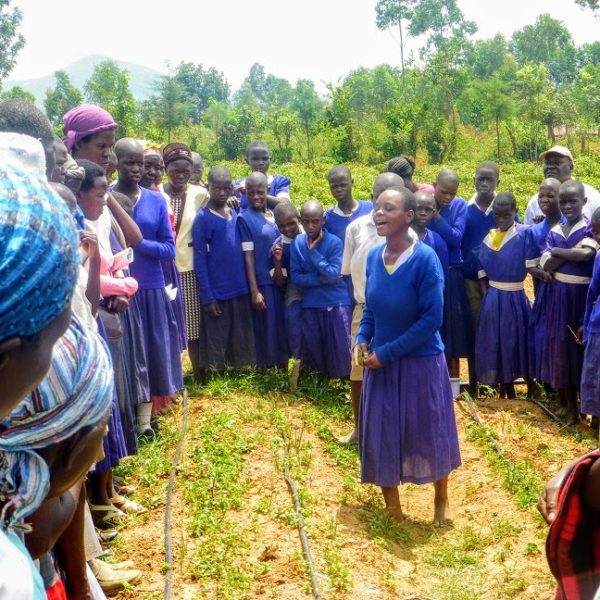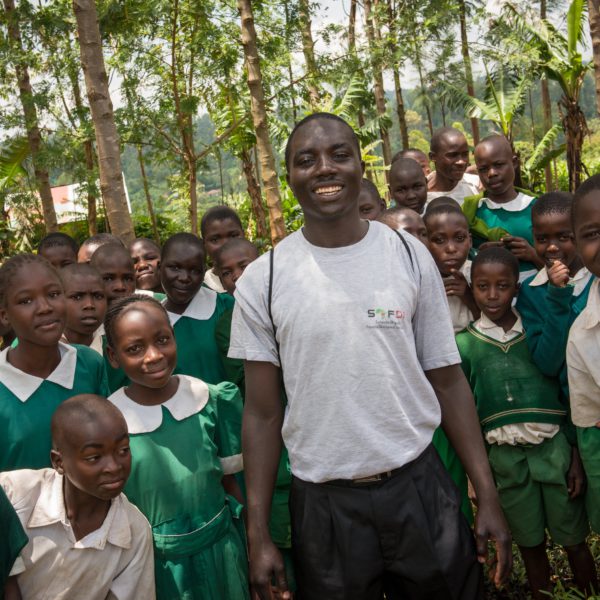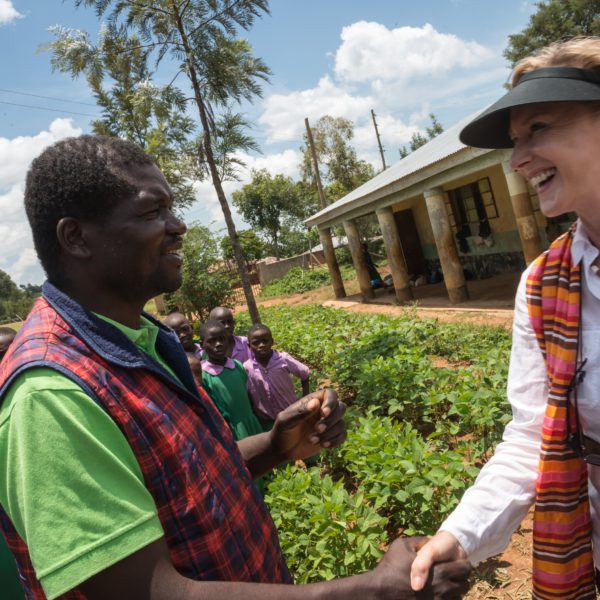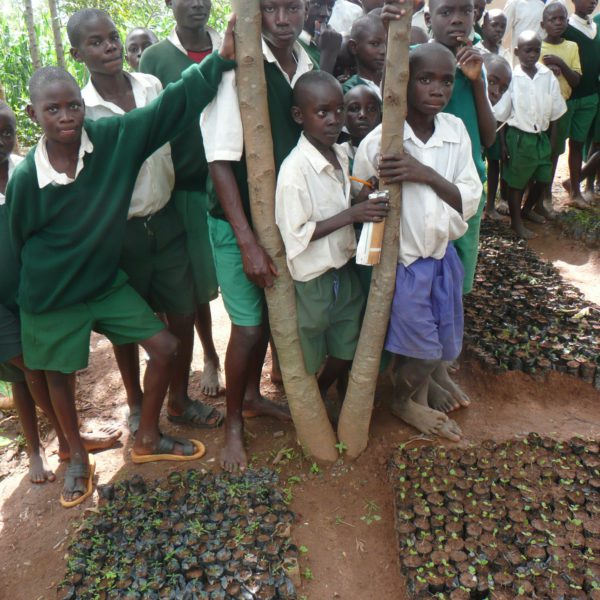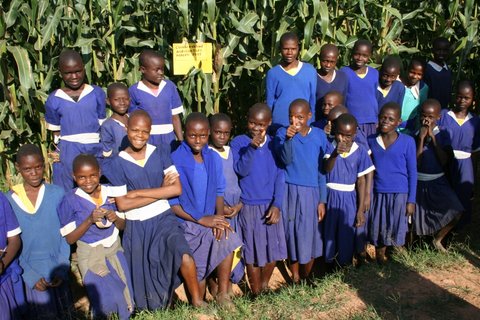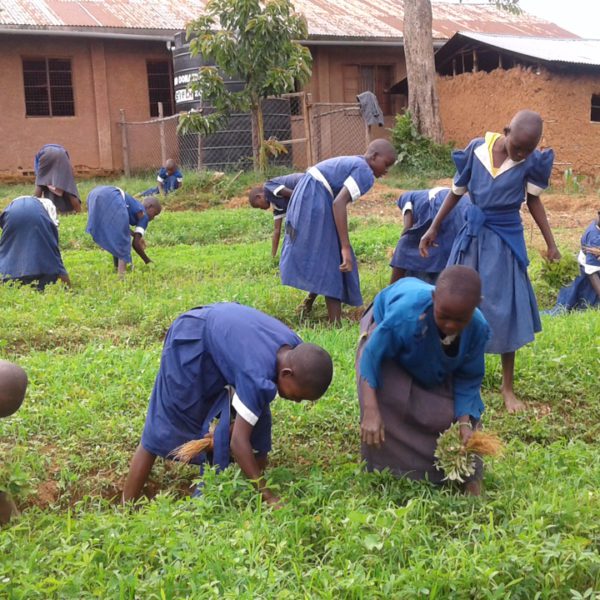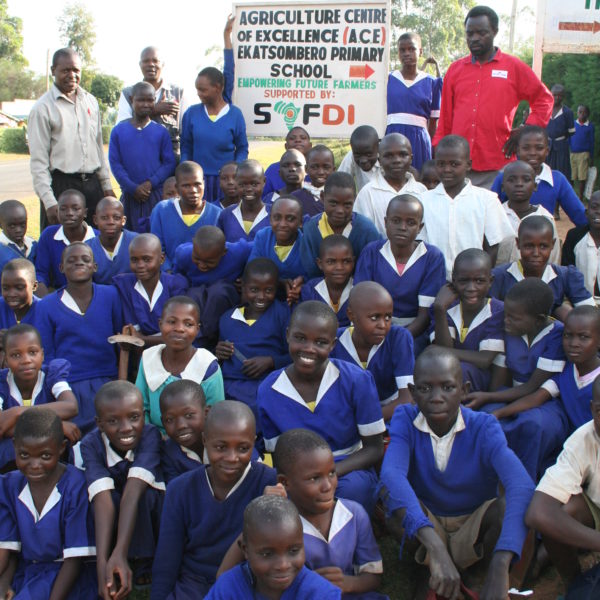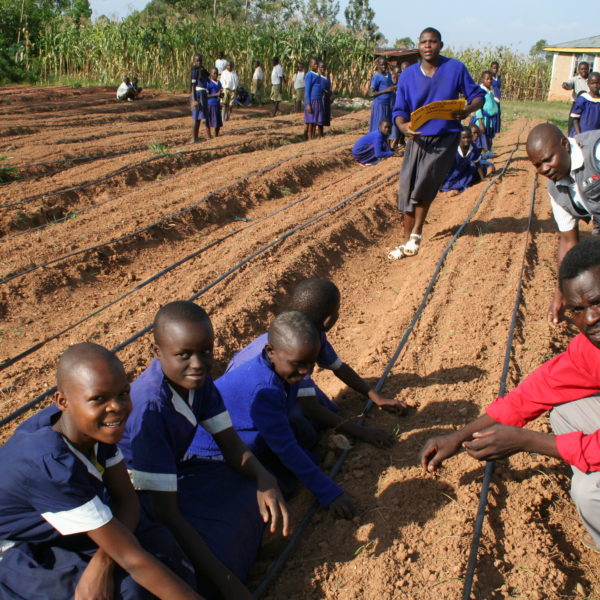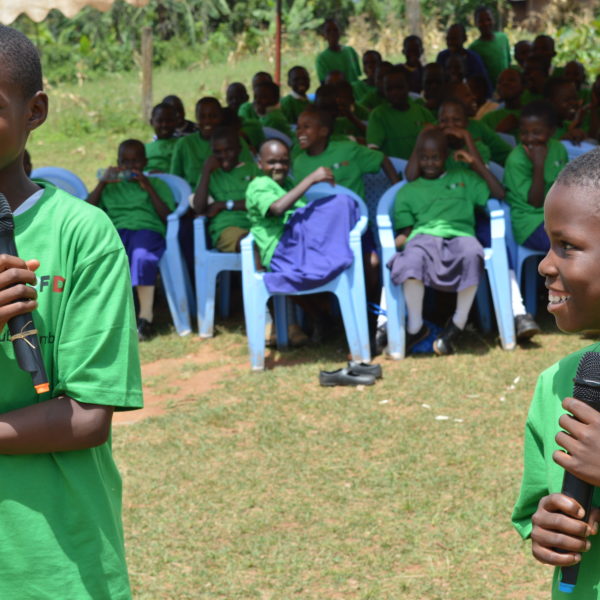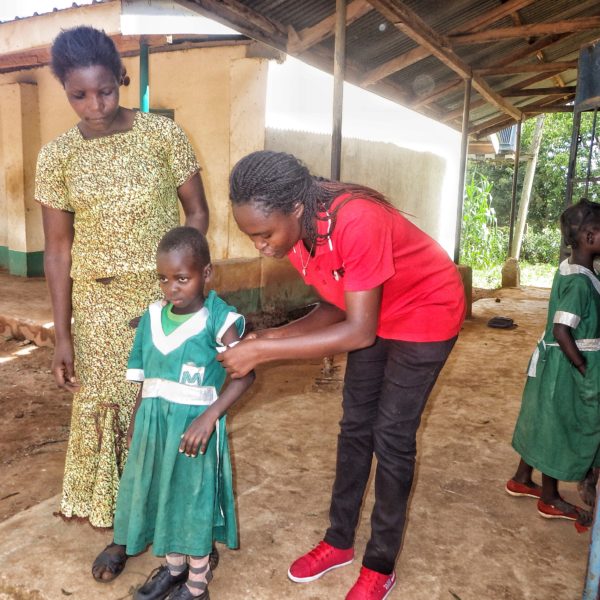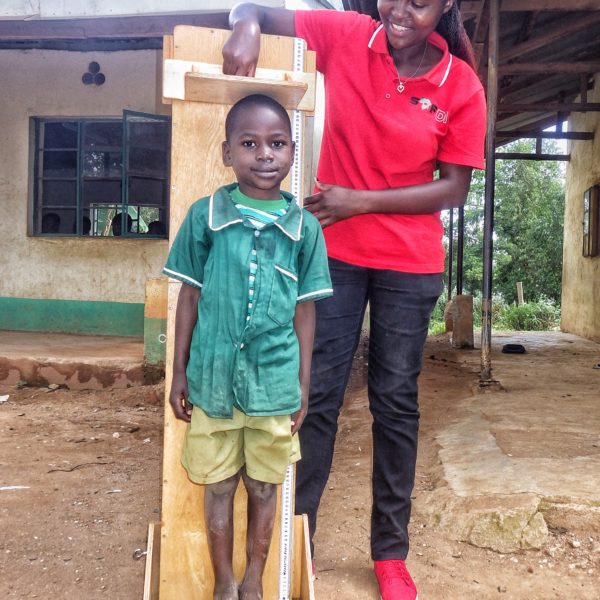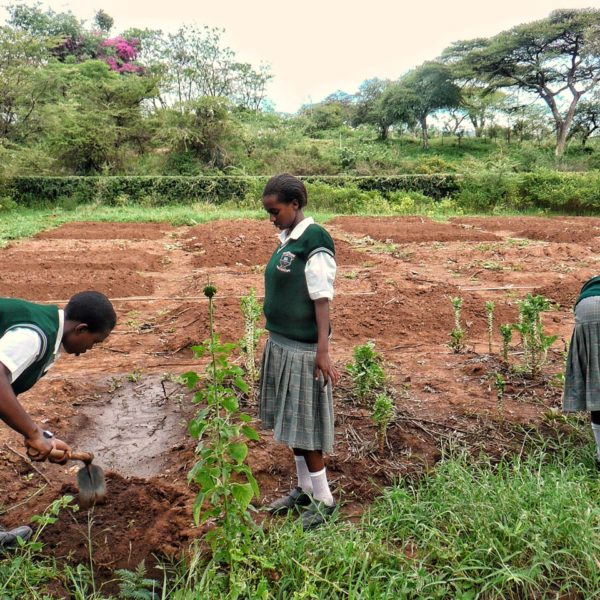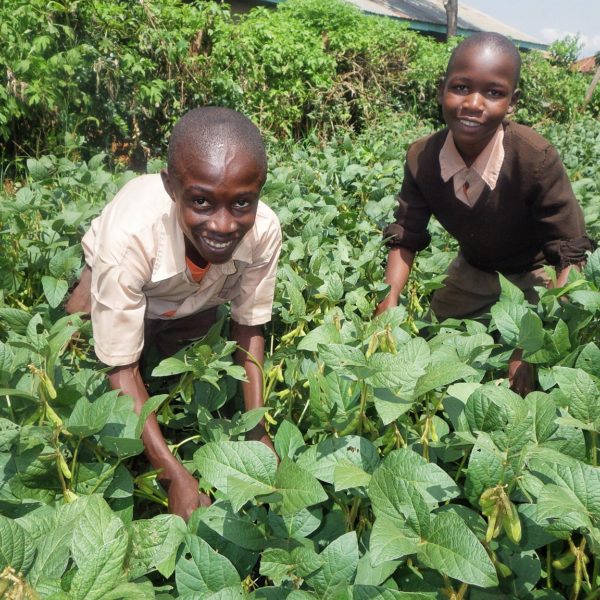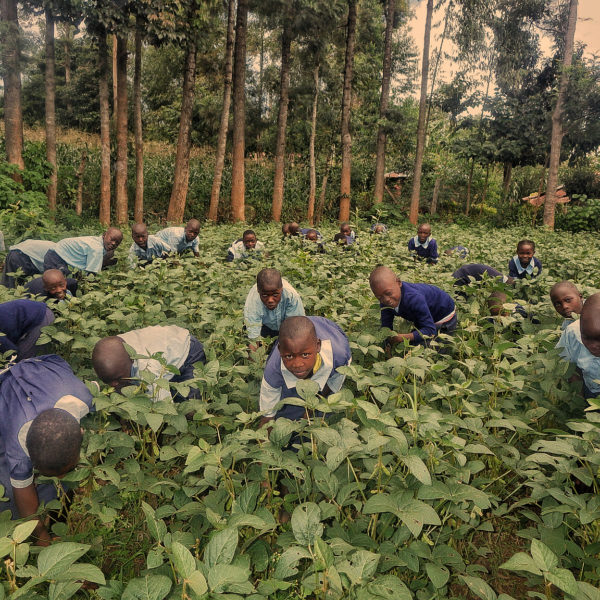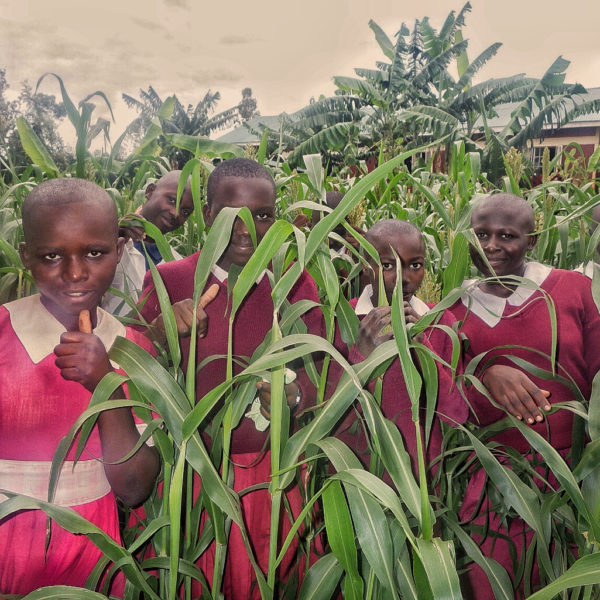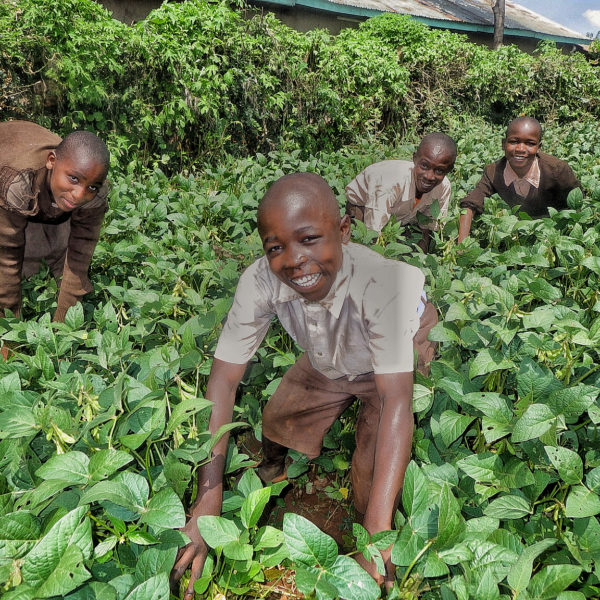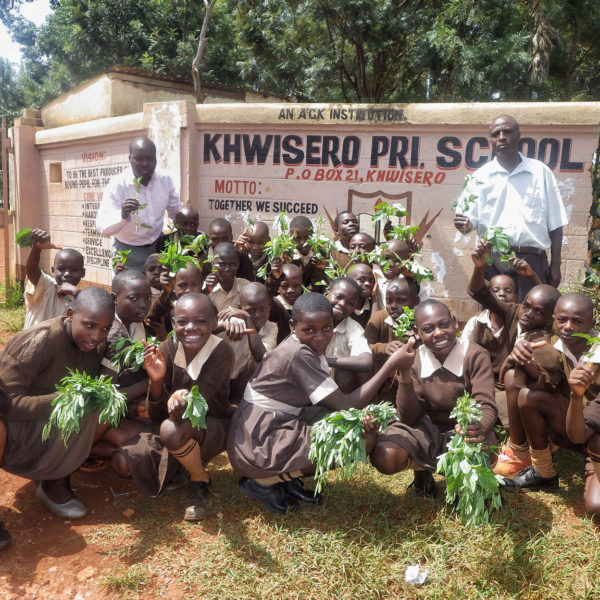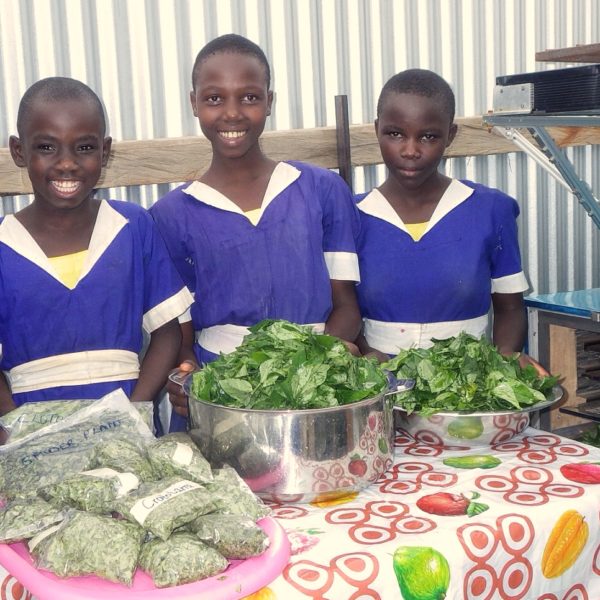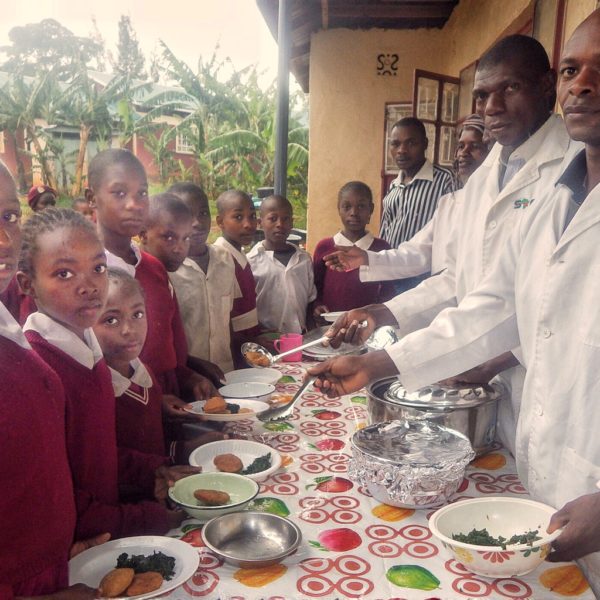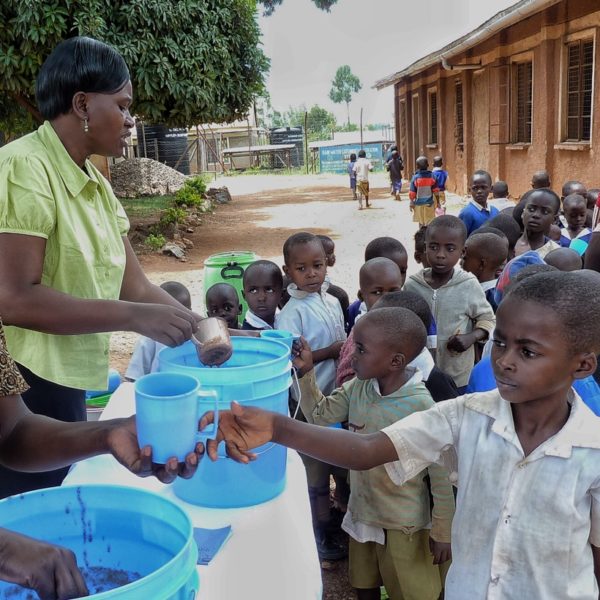THE CHALLENGE
80% of the population in Western Kenya depends on agriculture as a source of food and income. Food production is insufficient and dietary diversity is very poor.There aren’t enough job opportunities for school graduates.Agriculture is considered by the young as unattractive and as only meant for old people.They do not see it as a business opportunity and as a means to improve their livelihood. We want to change this negative picture.
OUR APPROACH
We reach out to the young and engage the children’s interest in agriculture in their formative years. We want to nurture a culture of appreciation for farming as a viable future income-generating opportunity, and to teach them about productive, sustainable agriculture through guided practice and modern technology.
We promote nutritional education and dietary diversity at an early age because eating habits are learned early. We show children how they can sustainably grow nutritious food for a healthy diet at home.
Our school program currently includes 40 schools and is expanding to include an additional 20 schools each year. The Ministry of Education and the Ministry of Agriculture is assisting us with the selection of schools with very active 4-K Clubs. Our schools are on average comprised of 500 pupils, 4-K Clubs of 60-80. We already have waiting lists for the clubs whose members are role models for the other children.
Children are trained in organic and sustainable farming, conservation agriculture, agroforestry and the propagation of trees, environmental awareness, nutritional education and animal welfare. Sanitation and hygiene also play an important role in SOFDI’s curriculum. SODIS technology is equally promoted.
Each school has a demonstration garden which showcases the different farming techniques with which the pupils produce nutritious foods, rich in micronutrients, vitamins and proteins.
During parent visiting days, students are proudly demonstrating their learned skills. Children receive improved sees, tubers and vines to share with their parents, so they can cultivate healthy produce for their families at home which further also has a trickle-down effect on their neighbors.
The school farm’s soils are tested with our newly implemented hand-held soil testers bought from SoilCare and pupils are encouraged to bring in soil samples from the parent’s farms for testing in order to create an awareness of the importance of soil health.
In some schools, small animal-rearing projects are run for additional access to proteins.These projects also include raising awareness of animal welfare,according to the motto :
Animals make our lives better. Help us make their lives better.
School patrons have been involved in the implementation of this program. They have also received agriculture training for a good understanding of and participation in the project. A committee consisting of teachers from various schools has been formed to monitor the program, and the Ministry of Agriculture is also involved to ensure the sustainability of this far-reaching project.
WHAT IS A 4-K Club?
Kuungana, Kufanya, Kusaidia Kenya’ is Swahili for ‘Coming together, to Act, in order to Help Kenya.’ Members of 4-K Clubs are students who are motivated to make changes to improve their own lives and the society as a whole. They act as role models for the other students.
In 2019 we shall in collaboration with EXETER UNIVERSITY introduce a MINDFULNESS IN SCHOOLS program.
Check out our video about 4-K-Club
AGRICULTURE CENTRE OF EXCELLENCE – ACE
One particular school that has been in the program for 5 years has been identified for the enhancement of the School Outreach Project. It has been upgraded to an Agriculture Center of Excellence School (ACE) in order to act as a peer-learning center for other schools and farmers within its catchment area, to exchange visits, to offer various workshops, to generate income for students in need, and to improve the nutritional status of the pupils. A remarkable trickle-down effect of the pupils’ influence at home and with their neighbors has been observed.
Furthermore, a medicinal garden has been established to educate the pupils about medicinal plants and their uses, while a propagation site (tree nursery) for medicinal, indigenous, fodder, fruit and other trees has been set up for better health, conservation of biodiversity, improved soil and environment, and enhanced farming productivity.
To all schools involved in this program we distribute issues of THE ORGANIC FARMER, for which SOFDI pays a monthly subscription.
EARLY CHILDHOOD DEVELOPMENT (ECD) FEEDING SCHOOL PROGRAM
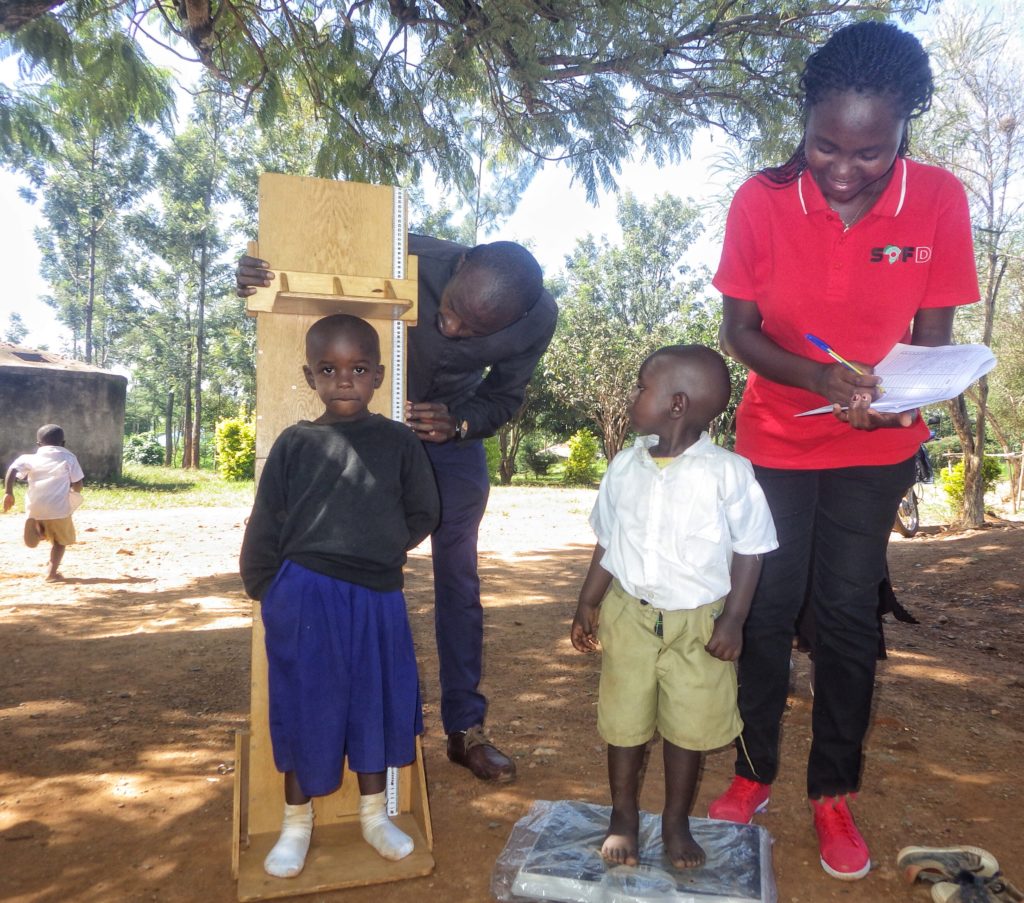
We have successfully introduced an innovative School Feeding Initiative targeting Early Childhood Development Centers (ECDs) / Preschools. The ECD centers have, traditionally, served a snack that consists largely of maize flour – a meal that lacks adequate nutrients to address the critical nutritional needs of this age group and the malnourishment from which most of these children suffer. In order to improve the nutrient content of this snack (which often is even diluted) we have introduced a soya-maize premix flour in the schools. To ensure sustainable availability of soya parents have been provided with soya seeds and skills to plant soya in their farms to provide the school with soya needed for the preparation of the porridge /snack. The porridge is intended to provide at least 30 percent of the daily caloric requirements, as well as a significant protein provision. So far 16 schools with over 2000 children have benefitted from this initiative. More than 2000 parents have already been trained on soya production and are in the process of being trained in Sustainable Agriculture as well. About 100 teacher’s and cooks have been trained on pre-schoolers nutrition, soya-maize premix preparation and sanitation and hygiene.
A survey conducted by Dr. Shadrack Oiye has shown significant performance improvement with increased ability of pupils to concentrate in class with good energy levels, reduced absenteeism / increased class attendence.
With parents trained in improved agriculture techniques as well as basic nutrition knowledge we expect a long term improvement of children’s nutritional status (and their siblings). We estimate that direct beneficiaries of the program shall be at least 4000 by end of 2018. In 2019 more schools shall be embedded in this initiative.
Through this project, not only is the children’s nutrition being improved, but it also provides an opportunity to engage the parents with education on agriculture and nutrition.

